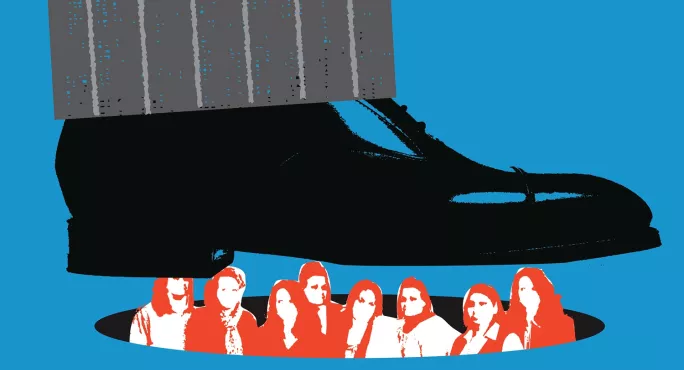- Home
- Why we are right to challenge independent schools
Why we are right to challenge independent schools

Earlier this week Tes columnist David James called on the NEU teachers’ union to reject proposals that would see independent schools abolished. Here an NEU activist responds
Discussion of the future of private schools has come to dominate many a headline in recent months, and rightly so. In June, Sutton Trust research revealed the extent to which the 7 per cent of the population who are privately educated go on to dominate top professions.
There are many inequities that arise from private schooling. These include the unequal distribution of resources - private school pupils on average have three times more spent on them than their state school counterparts. But they also include issues of segregation - the way in which private schools syphon the wealthiest off from the rest. Notably, this segregation finds fullest realisation in Britain’s elite “public schools”.
The combination of better resources and access to a particular kind of cultural and social capital provides a perfect recipe for amplifying privilege; this is the story behind the statistic that 65 per cent of senior judges and 44 per cent of news columnists went to private school.
But a polished system for reproducing societal inequalities through schooling is not inevitable. Beneath the provocative “Abolish Eton” hashtag, a plan for ending our educational apartheid is unfolding. This weekend at Labour conference, the grassroots group behind the campaign Labour Against Private Schools (LAPS), will call on the party to adopt radical policies to end private school privilege once and for all. So what do these policies look like?
Should we abolish independent schools?
A first step would be the removal of private schools’ charitable status - around 50 per cent are registered as charities. This is a relic from a long-gone era, pre-dating state education itself. It is a great irony that the oldest and most elite of our public schools were once set up to provide free education for society’s poorest. And while this spirit has long since ceased to have any significant manifestations (less than 1 per cent of private school pupils currently attend for free) the tax exemptions designed to facilitate this philanthropy remain. Even ex-Tory education secretary Michael Gove has described this system as providing ”egregious state support to the already wealthy”.
Ending these tax privileges would raise around £2bn per year - by our calculations, 5 per cent of the state school budget. This could be funnelled straight into the state sector, as promised by the 2017 Labour manifesto, which pledged to use money raised by private school taxation to fund free school meals for all primary pupils. At a time when school cuts have pushed state schools to breaking point, it is remarkable that these tax breaks for the affluent have been allowed to continue.
LAPS has also called for rigorous contextual admission to universities. Since 93 per cent of the population attends state schools, universities should ensure 93 per cent of their intake has too. This would drastically change the make-up of our higher education institutions, as well as the experience of the working-class (and BME) students who study there.
Some will say that such quotas will lead to a drop in standards. But it is not talent that state-school pupils lack, merely access to the opportunities needed for this talent to be realised. Quotas would, almost overnight, achieve what years of prevaricating about Oxbridge’s access records have not: fair access to our higher education institutions for all.
The extraordinary accumulated wealth of public schools must also be addressed. Huge gaps exist between state and private sector in terms of endowments, investments, land and resources. For the schools registered as charities (many of the wealthiest institutions) these assets could be nationalised through legislation, allowing them to be used for the benefit of local communities. For private schools without charitable status a phased plan for nationalisation through recompensing private owners could be put in place. But if these strategies serve to alleviate some of the inequality bound up in our schools, full abolition would create a single comprehensive education system that might work for everyone.
This is what Finland did in the 1970s. Recognising the divisive and unequal effect private schools were having they opted to abolish them. Private and grammar schools were scrapped in favour of a universal comprehensive model. Over the years that followed a global education success story unfolded - resulting in one of the most equitable education systems in the world. There is no reason this could not be done here.
The process is achievable. Legislation already prevents state schools from charging fees, the same rules could be applied to all of our schools. Existing private schools could transition to state schools over a five-year window - eg each year secondary private schools would admit a comprehensive Year 7 cohort until, in five years’ later, the entire school was comprehensive.
Ultimately, private school abolition is about asking what education system all young people deserve and not being afraid to make the changes required to deliver it. It’s about building a positive vision for education where, in our schools at least, all of our young people get the same deal. It’s about recognising deeply inequitable societal structures and choosing to dismantle rather than perpetuate them. The LAPS campaign, if successful in its demands for full abolition, will bring us huge steps closer to achieving this.
Chloe Tomlinson is a primary school teacher and NEU teaching union activist
Keep reading for just £1 per month
You've reached your limit of free articles this month. Subscribe for £1 per month for three months and get:
- Unlimited access to all Tes magazine content
- Exclusive subscriber-only stories
- Award-winning email newsletters
